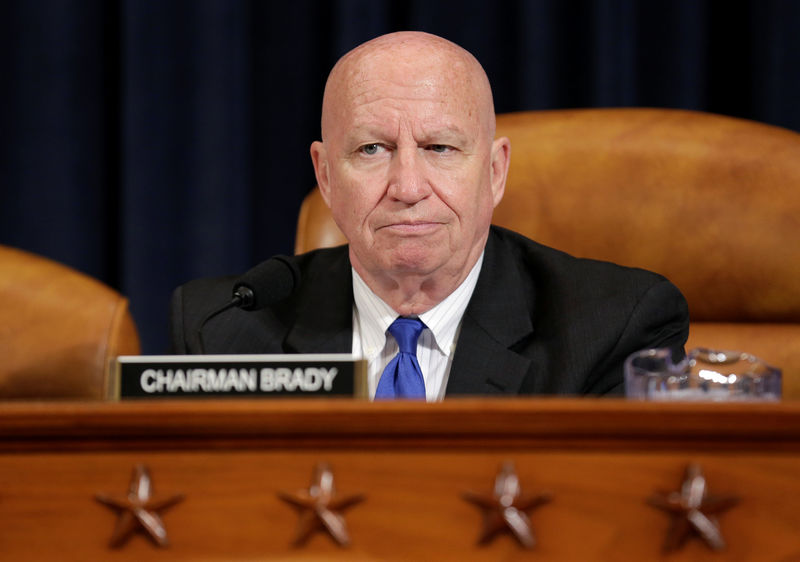By Yasmeen Abutaleb and Richard Cowan
WASHINGTON (Reuters) - Congressional Republicans recrafted their Obamacare replacement bill on Monday in hopes of satisfying critics as U.S. President Donald Trump prepared to promote his first major legislative initiative on Capitol Hill.
In a sign of deepening concern among Republicans about the bill's future, Trump will speak to the party's lawmakers in Congress on Tuesday about the healthcare overhaul, two House Republican aides said.
The Republican leadership proposed a series of amendments that marked major legislative changes, but it was not immediately clear whether they would help win more Republican support amid solid opposition from Democrats.
A leading conservative voice in the House, Representative Jim Jordan of Ohio, is still opposed to the legislation even with the proposed changes, according to an aide.
The administration and House leadership can only afford to lose about 20 votes from Republican ranks. They need to shore up support from moderate Republicans who fear the bill dismantling President Barack Obama's signature Affordable Care Act will hurt millions of Americans enrolled in the program.
However, Trump and Republican leaders must also appeal to hard-right conservatives who believe the original bill did not go far enough in repealing the law, prompting some to dub it "Obamacare Lite."
According to Republican sources who asked not to be identified, House leaders will propose an approximately $85 billion fund for tax credits to help people aged 50-64 get health insurance.
In an unusual move, the House proposed providing the Senate flexibility to offer more help to that age group, which may need a larger tax credit to help cover their healthcare costs - a move aimed at winning over more moderate Republicans. It did not specify how the Senate should do so.
Conservatives have opposed refundable tax credits, calling them another entitlement program.
One amendment would dismantle most of Obamacare's taxes one year earlier than initially proposed, in 2017 instead of 2018. That includes both the individual mandate that requires everyone to purchase health insurance or else pay a penalty, and the requirement that employers of a certain size provide coverage.
The new language also addresses Medicaid, the federally backed healthcare program for the poor and disabled that is one of the most contentious aspects of the bill.
To appease conservatives, states would have the option of implementing work requirements for able-bodied adults without children or dependents. However, even the Heritage Foundation, a powerful conservative group, has opposed such a provision.
In addition, states could decide whether to take per capita allotments for their Medicaid programs or block grants for certain populations. Both would drastically reduce federal Medicaid funding from current levels.
Republican leaders hope to move the legislation to the House floor for debate as early as Thursday.
DAMAGED PROSPECTS
At a rally in Louisville, Kentucky, on Monday night, Trump said he wanted to add a provision to the bill that aims to lower prescription drug costs through a "competitive bidding process."
"We're trying to add it to this bill and if we can't, we'll have it right after," he said. During the presidential campaign, Trump called for allowing Medicare to negotiate with pharmaceutical companies, something the law currently prohibits.
The Congressional Budget Office (CBO) analysis of the original House Republican bill a week ago severely damaged its prospects. It said 14 million people would lose health coverage under the measure over the next year and 24 million over the next decade.
The CBO is expected to update its analysis of the impact of the legislation to take into account the latest changes being proposed.
Under the retooled legislation, the rollback of Obamacare's Medicaid expansion, which provided states enhanced federal funding for new enrollees, would be slowed.
More than 30 states, including about a dozen with Republican governors, chose to expand their Medicaid programs under Obamacare. Several Republican governors and key senators and House members have expressed concern over abruptly cutting federal Medicaid funding and therefore taking insurance away from millions of people.
Republican leaders are now proposing that many of those who gained coverage under the expansion could keep it. The federal government would maintain the higher funding levels for those up to 133 percent of the federal poverty level. Obamacare expanded coverage to those making incomes up to 138 percent.
Those beneficiaries could keep their coverage until they "cycle off" the program, possibly because they would eventually make enough money to purchase private insurance or obtain it through an employer.
Another amendment would allocate more money for healthcare costs for the disabled and elderly on Medicaid. The unusual mix of amendments to Medicaid reflects leadership's attempt to assuage concerns from both staunch conservatives and moderates.
Democrats oppose the Republicans' plan, which they say would throw millions off health insurance and hurt the elderly, poor, and working families while giving tax cuts to the wealthy.

Democrats as well as hospitals and insurers have urged Republicans to consider how their plan would affect access to healthcare for the 20 million people insured by Obamacare.